 |
Like anything, you want to strike a balance – presenting your story in the best way possible while not claiming that you’re something you’re not.
|
120 |
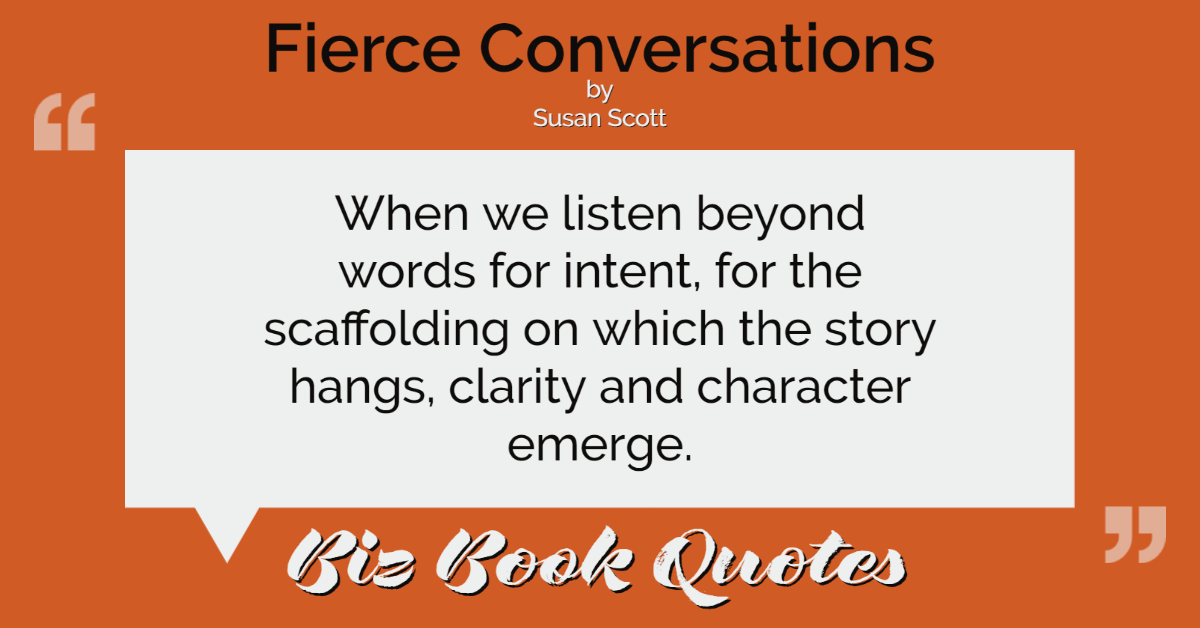 |
When we listen beyond words for intent, for the scaffolding on which the story hangs, clarity and character emerge.
|
104 |
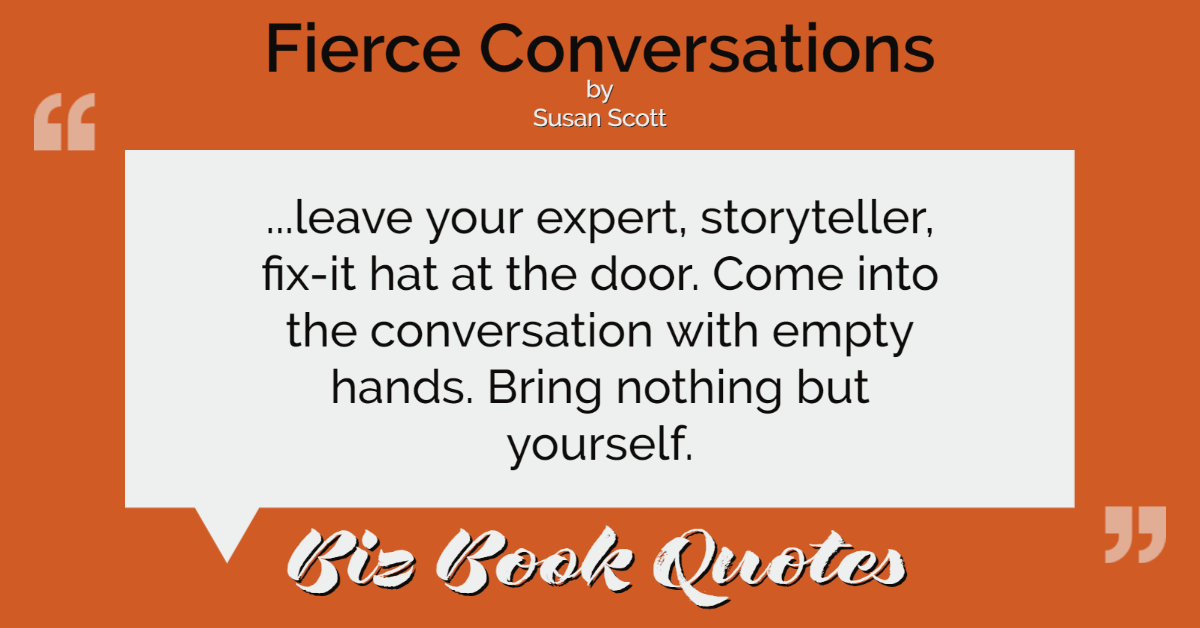 |
…leave your expert, storyteller, fix-it hat at the door. Come into the conversation with empty hands. Bring nothing but yourself.
|
118 |
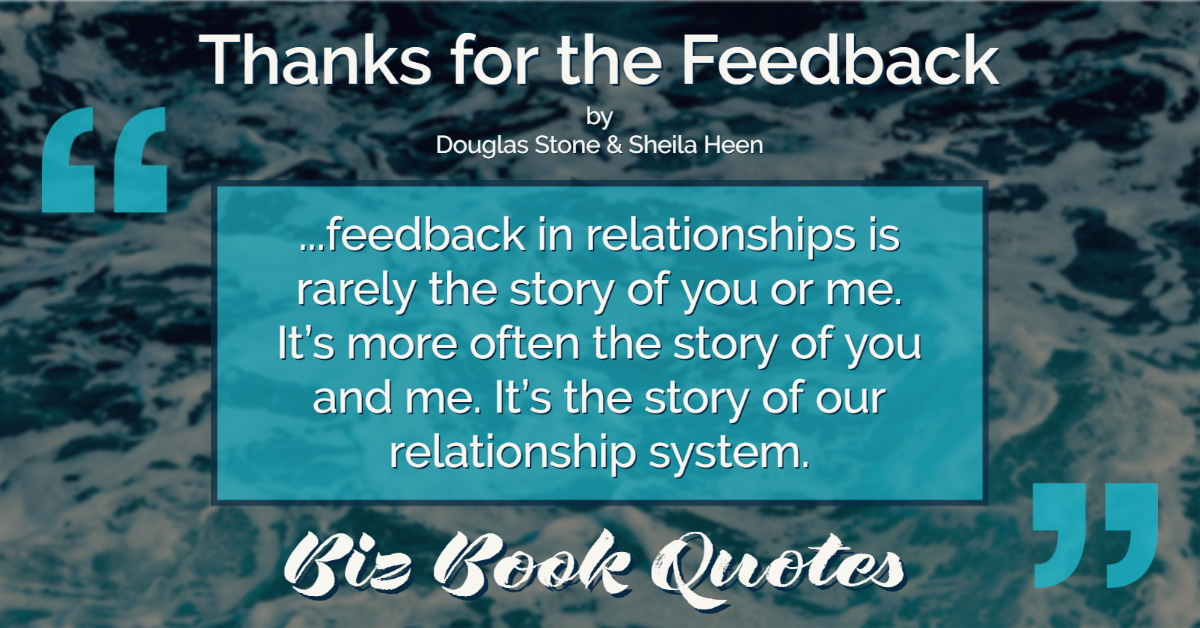 |
…feedback in relationships is rarely the story of you or me. It’s more often the story of you and me. It’s the story of our relationship system.
|
23 |
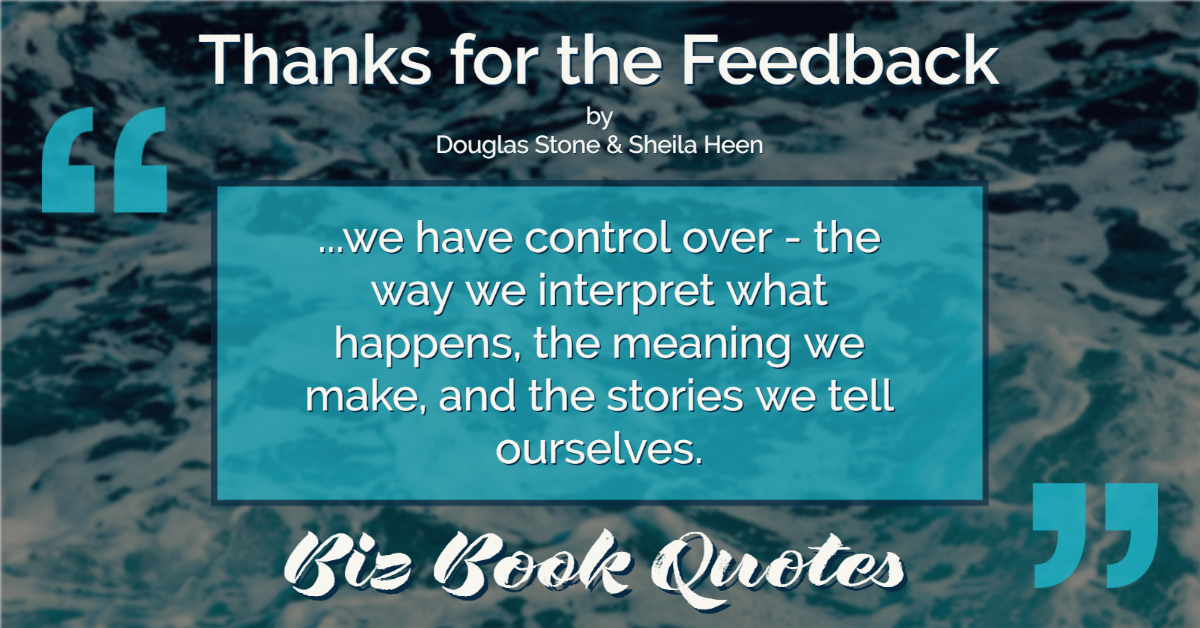 |
…we have control over – the way we interpret what happens, the meaning we make, and the stories we tell ourselves.
|
158 |
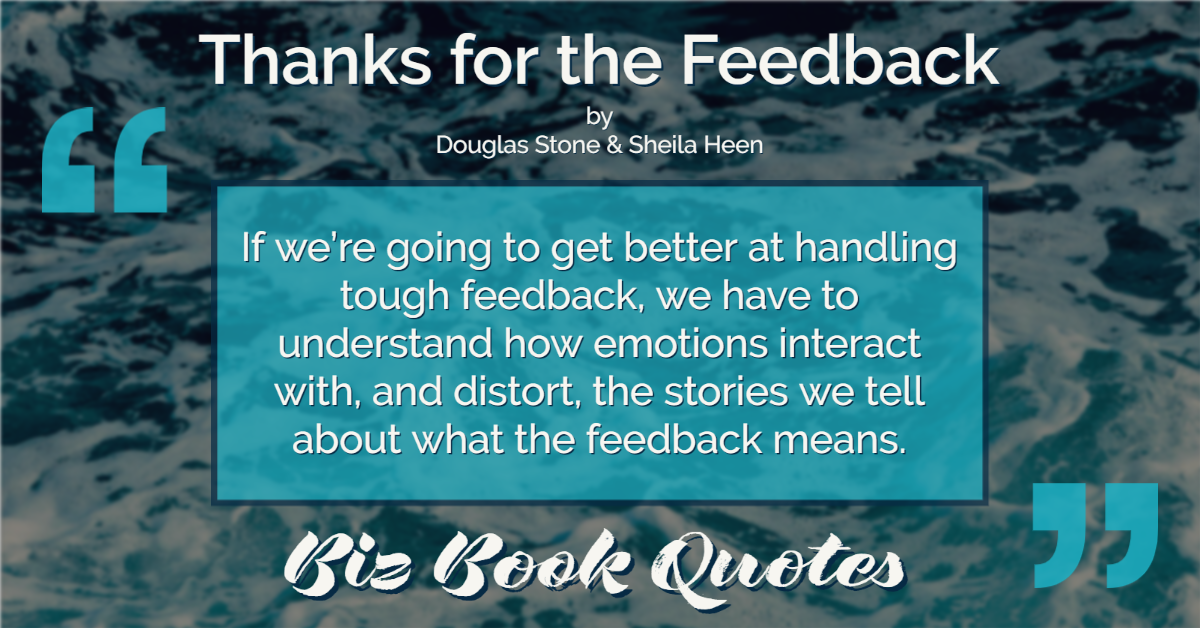 |
If we’re going to get better at handling tough feedback, we have to understand how emotions interact with, and distort, the stories we tell about what the feedback means.
|
159 |
 |
If our stories are a result of our feelings plus our thoughts, then we can change our stories by working to change either our feelings or our thoughts.
|
161 |
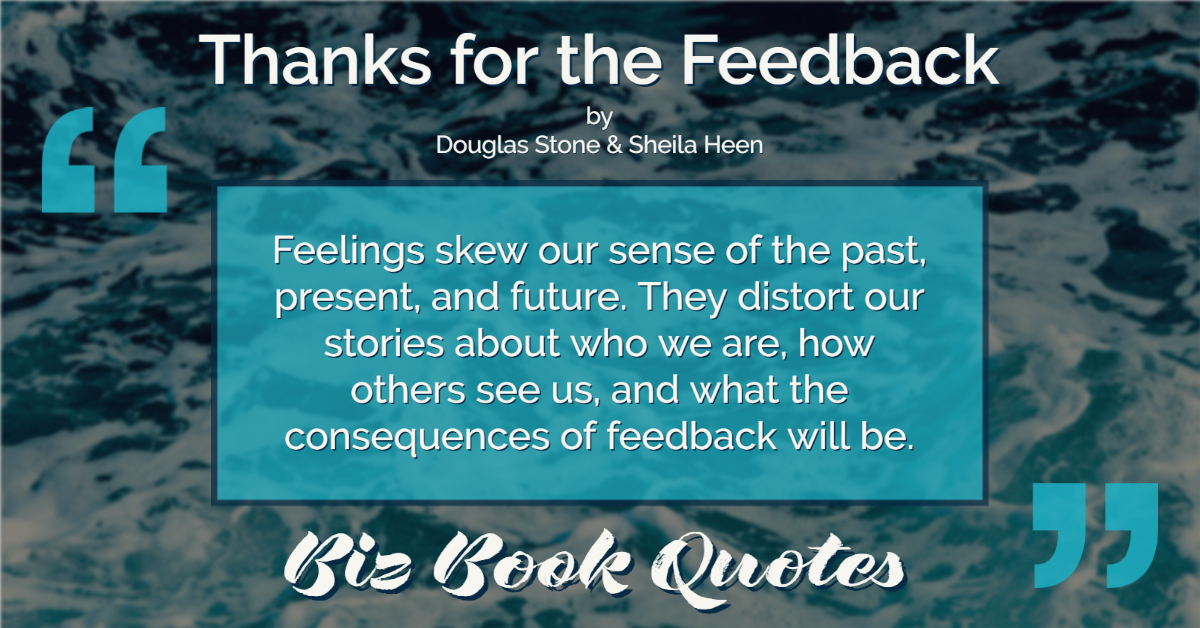 |
Feelings skew our sense of the past, present, and future. They distort our stories about who we are, how others see us, and what the consequences of feedback will be.
|
161 |
 |
Fueled by emotion, our story about what the feedback says about us grows so large and damning that we are overwhelmed by it. Learning is the least of our worries; we’re just trying to survive.
|
165 |
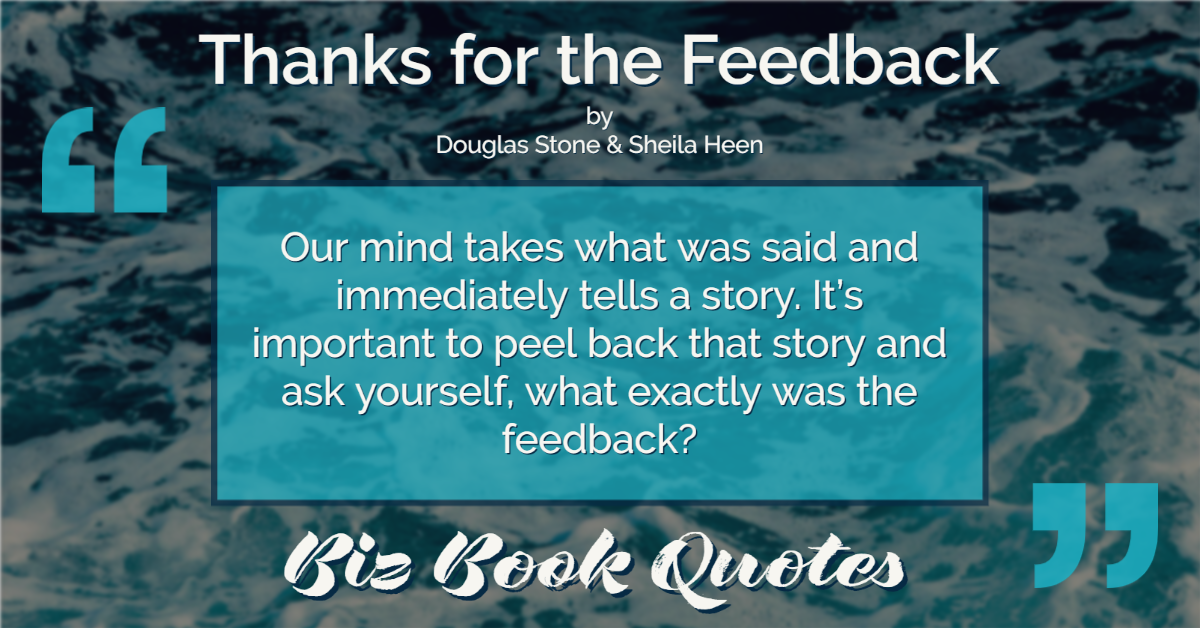 |
Our mind takes what was said and immediately tells a story. It’s important to peel back that story and ask yourself, what exactly was the feedback?
|
170 |